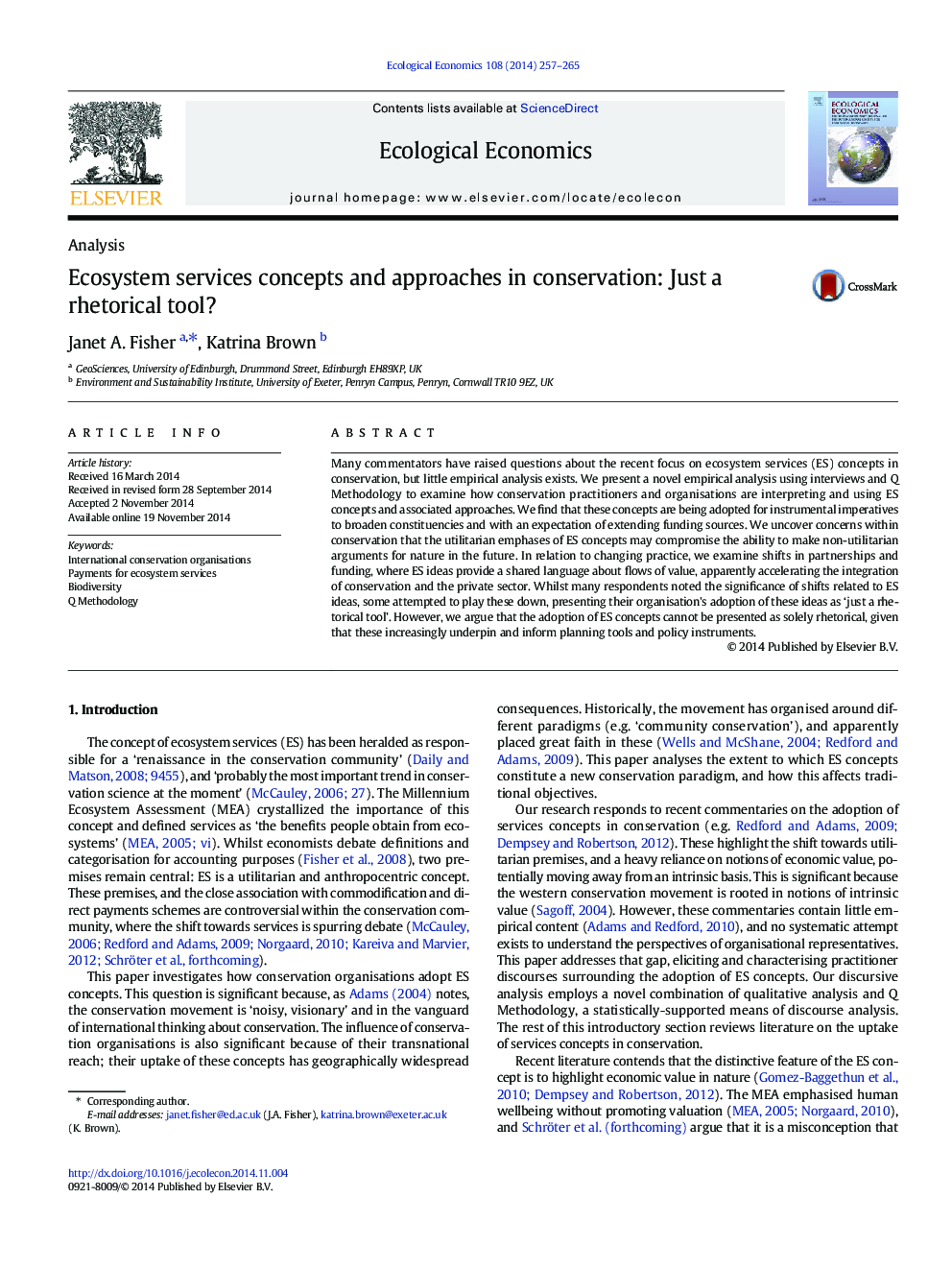| Article ID | Journal | Published Year | Pages | File Type |
|---|---|---|---|---|
| 5049592 | Ecological Economics | 2014 | 9 Pages |
â¢Lack of empirical analysis of how ecosystem servicesconcepts are used in conservationâ¢We examine this using qualitative and Q methodological research.â¢Concepts are adopted to broaden constituencies and in expectation of increasing funding.â¢Widespread concern that servicesconcepts undermine non-utilitarian conservation rationale.â¢Changes manifest in conservation planning tools and policies, well beyond a rhetorical realm.
Many commentators have raised questions about the recent focus on ecosystem services (ES) concepts in conservation, but little empirical analysis exists. We present a novel empirical analysis using interviews and Q Methodology to examine how conservation practitioners and organisations are interpreting and using ES concepts and associated approaches. We find that these concepts are being adopted for instrumental imperatives to broaden constituencies and with an expectation of extending funding sources. We uncover concerns within conservation that the utilitarian emphases of ES concepts may compromise the ability to make non-utilitarian arguments for nature in the future. In relation to changing practice, we examine shifts in partnerships and funding, where ES ideas provide a shared language about flows of value, apparently accelerating the integration of conservation and the private sector. Whilst many respondents noted the significance of shifts related to ES ideas, some attempted to play these down, presenting their organisation's adoption of these ideas as 'just a rhetorical tool'. However, we argue that the adoption of ES concepts cannot be presented as solely rhetorical, given that these increasingly underpin and inform planning tools and policy instruments.
